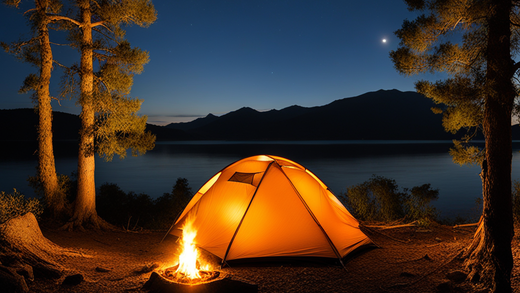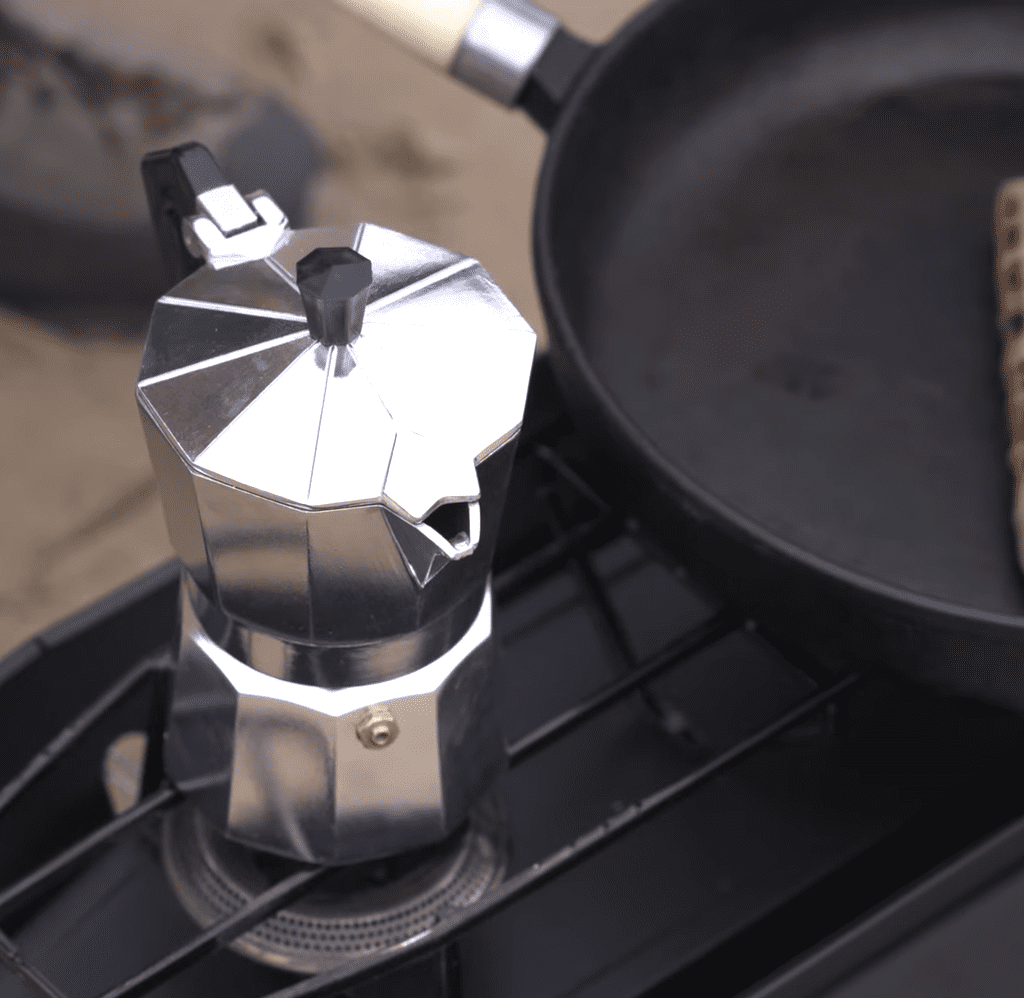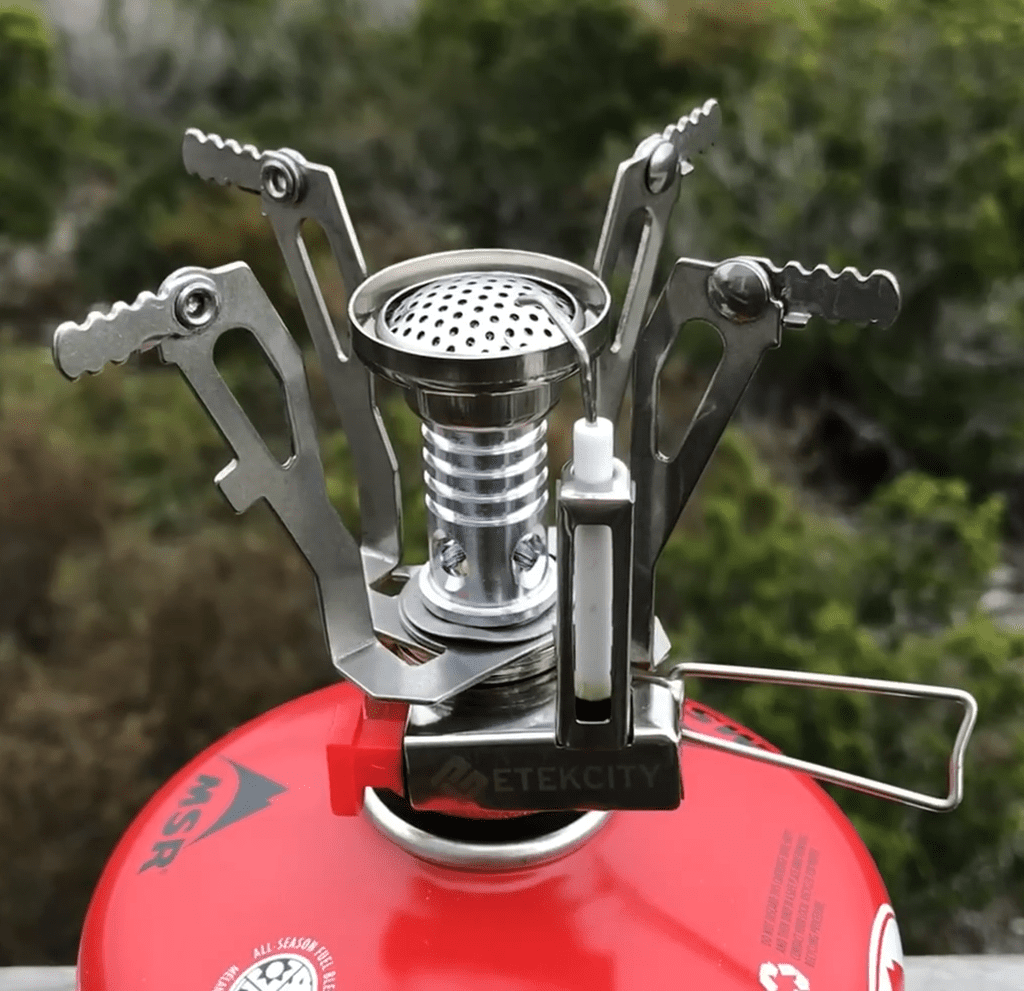Welcome to our complete guide on camping! If you have ever thought about what camping is all about or if you’re new to the world of outdoor adventures, you are come to the right place. In this camping guide, we will tell you what is camping and a detailed camping introduction, covering everything from the basics to the benefits and tips for a successful camping trip.
Camping Introduction
Camping is all about enjoying the experience and making lasting memories. Disconnect from technology and adopt the simplicity of nature. Spend quality time with family and friends, enjoy the night sky, and appreciate the beauty of nature. One of the best parts of camping is getting to explore the beauty of nature. Take hikes, go fishing, or simply relax by the campfire. Now that you have a basic introduction to camping.
What is Camping?
Camping is an outdoor recreational activity that involves spending time in nature, typically overnight, away from the comforts of home. It allows individuals and families to connect with nature, relax, and get away from the stress of everyday life.
Whether you are putting a tent in the wilderness, setting up a campsite at a chosen campground, or even staying in a recreational vehicle (RV), camping offers a unique experience of spending time in the natural world.
Types of Camping
There are different types of camping to suit your tastes and requirements. We’ll explore some of the different types of camping and what makes each one unique.
1. Tent Camping
Tent camping is the most traditional and popular form of camping. It involves setting up a tent at a chosen campsite and sleeping under the stars. Tent camping is popular among families, friends, and solo travelers. It offers a sense of simplicity and allows campers to lose themselves in nature completely.
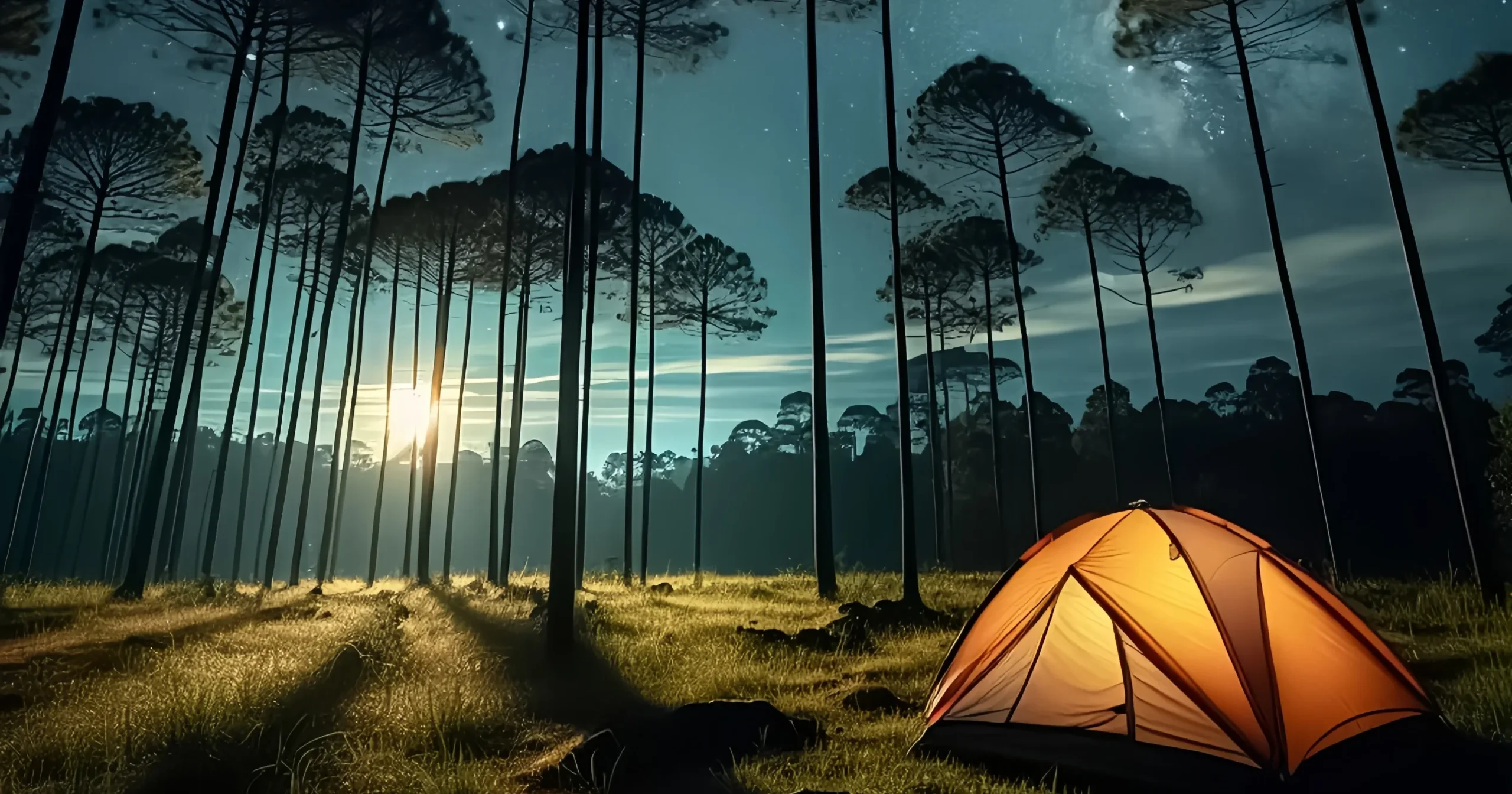
2. RV Camping
RV camping, also known as recreational vehicle camping, is a simpler and more enjoyable option for those who prefer a bit of luxury while camping. RVs are like mobile homes on wheels, equipped with facilities such as beds, a kitchen, a bathroom, and even entertainment systems. RV camping allows you to take the comforts of home with you while camping.
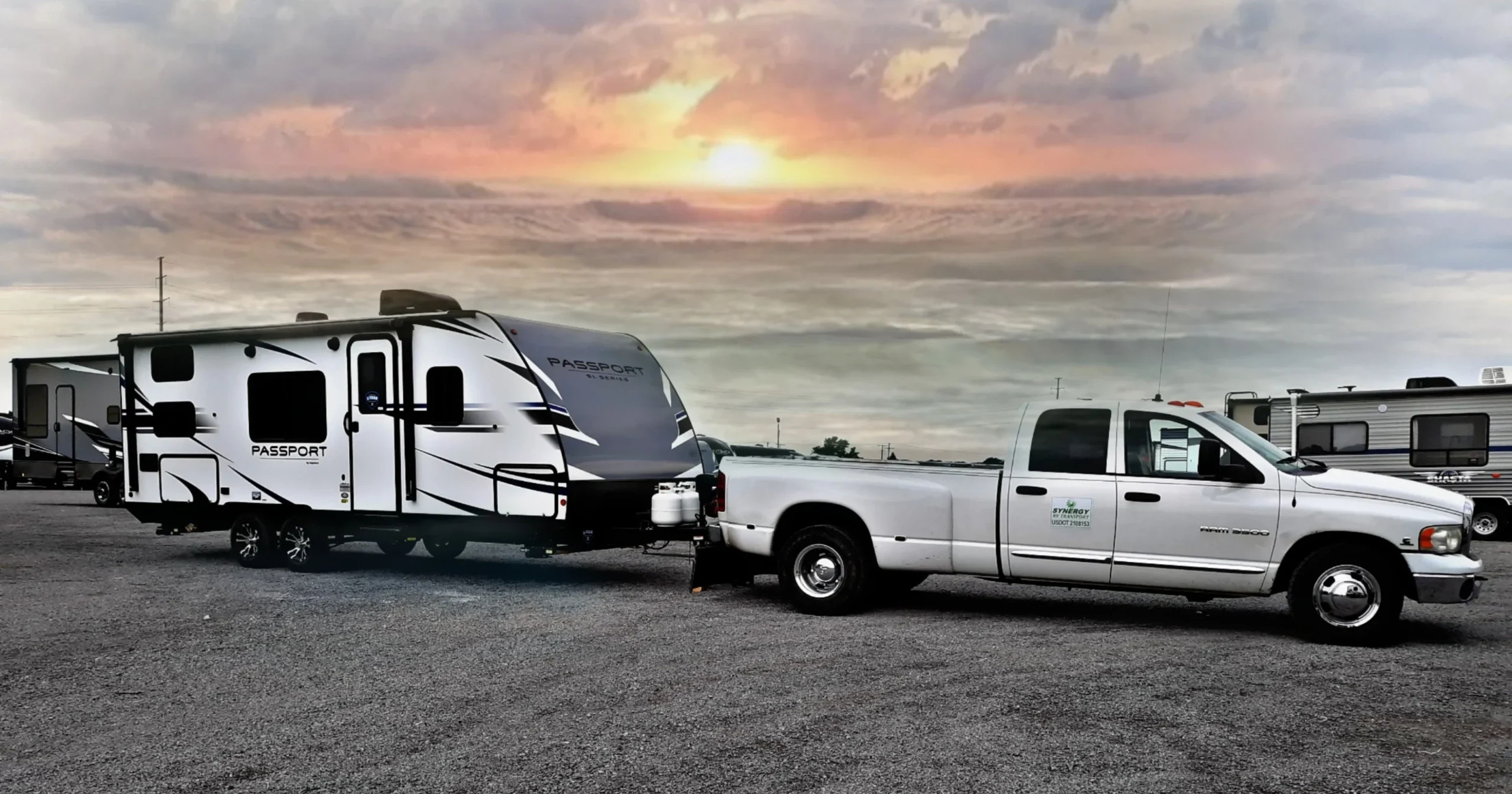

3. Backpacking
For the more curious minds, backpacking is an exciting form of camping that involves carrying all your gear on your back and hiking to remote locations. Backpacking allows you to explore untouched wilderness and experience the thrill of self-sufficiency. It requires careful planning and preparation, but the results are well worth it.
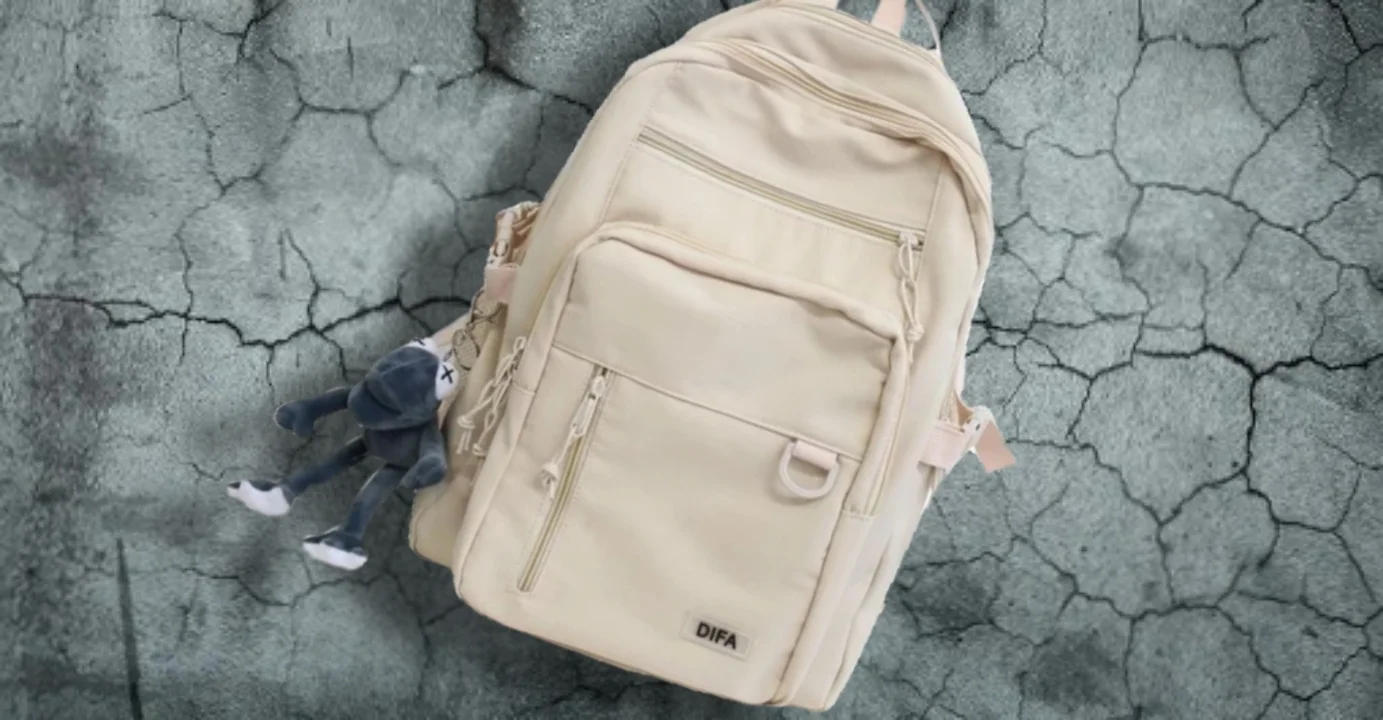

4. Glamping
If you love the idea of camping but don’t want to sacrifice the comforts of home, glamping is the perfect option for you. Glamping is about enjoying the beauty of nature with high-end housing without giving up the comfort of home. From luxurious tents with comfortable beds to delicious meals prepared by professional chefs, glamping offers a unique and special camping experience.


5. Car Camping
Car camping is a popular choice for those who want to enjoy nature without the effort of carrying all their gear on their backs. With car camping, you can drive your vehicle to a selected campsite and set up your tent or sleep in the back of your car. It’s an excellent choice for families, as it allows you to carry more gear and supplies.
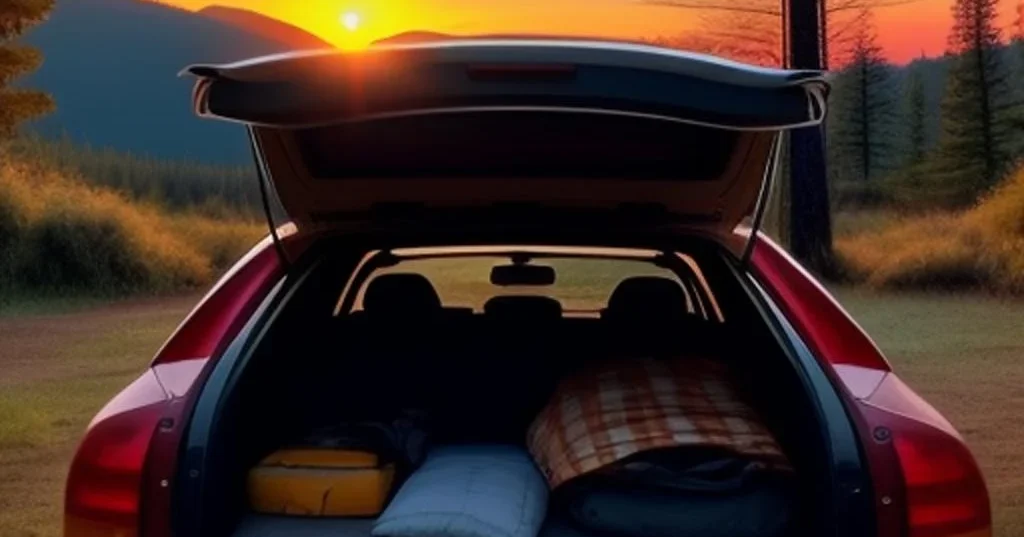

6. Beach Camping
Beach camping is for those who love the sun, sand, and sea. It involves setting up your campsite on a beach and enjoying its natural beauty. Beach camping offers the opportunity to swim, sunbathe, and enjoy dazzling sunsets from your campsite. Just make sure to check the regulations and permits required for beach camping in your desired location.
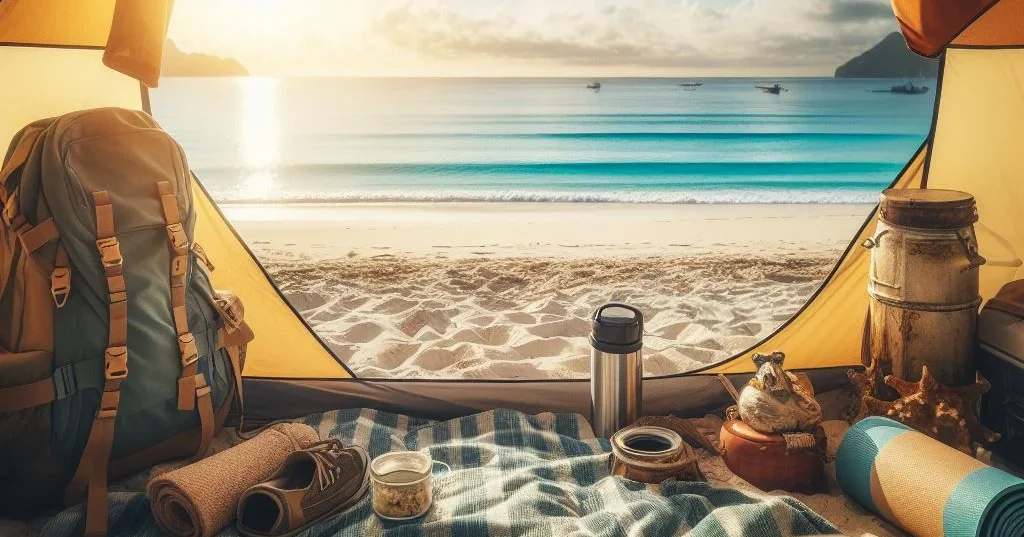

7. Winter Camping
| Countries | Winter Months |
| Northern | Begins December 1, January, to the end of February. |
| Southern | Begins June 1, July, and ends at least August. |
Winter Winter camping is a thrilling and challenging form of camping that requires specialized gear and preparation. It allows you to experience the beauty of snow-covered landscapes and enjoy activities such as skiing, snowboarding, and snowshoeing. But winter camping requires extra precautions to ensure safety and warmth, so it’s important to be well-prepared.
8. Spring Camping
| Countries | Spring Months |
| Northern | Begins March 1, April, and ends at least May 30. |
| Southern | Starts in September, October, and ends in November’s last days. |
Spring is a beautiful time to go camping. The weather is cool, and the landscape is lush and green. One popular type of camping in spring is tent camping. Setting up a tent and sleeping under the night sky. Also, spring is a great time for hiking and fishing, as many lakes and rivers are filled with fresh water and colorful wildlife.
9. Summer Camping
| Countries | Summer Months |
| Northern | Starts in June and runs until at least August. |
| Southern | Begins in December to January and February. |
Summer is the most popular camping season, and it offers a wide range of camping options. One popular type of camping during this season is RV (Recreational vehicle) camping. With an RV, you can enjoy the comfort of your home while exploring different destinations.
RV camping allows you to travel to various national parks, beaches, and campgrounds, providing you with endless opportunities for outdoor. Among them, beach camping is the most popular in summer, where you can set up your tent or RV near the ocean and enjoy swimming, sunbathing, and beach activities.
10. Fall Camping
| Countries | Autumn Months |
| Northern | Starts in mid-September and ends at least mid-December. |
| Southern | Starts in mid-March to April, and ends in May. |
Fall is an amazing season for camping, with its vibrant colors and cooler temperatures. One type of camping that is particularly popular during this season is cabin camping. Renting a cozy cabin in the woods allows you to enjoy the beauty of autumn’s colors while still having the comforts of a home. Fall is also a great time for backpacking and hiking. You can explore beautiful trails and observe the amazing transformation of nature.
No matter what type of camping you choose, each offers its own unique experience and allows you to connect with nature in different ways. Each type of camping has its own unique style.
Benefits of Camping
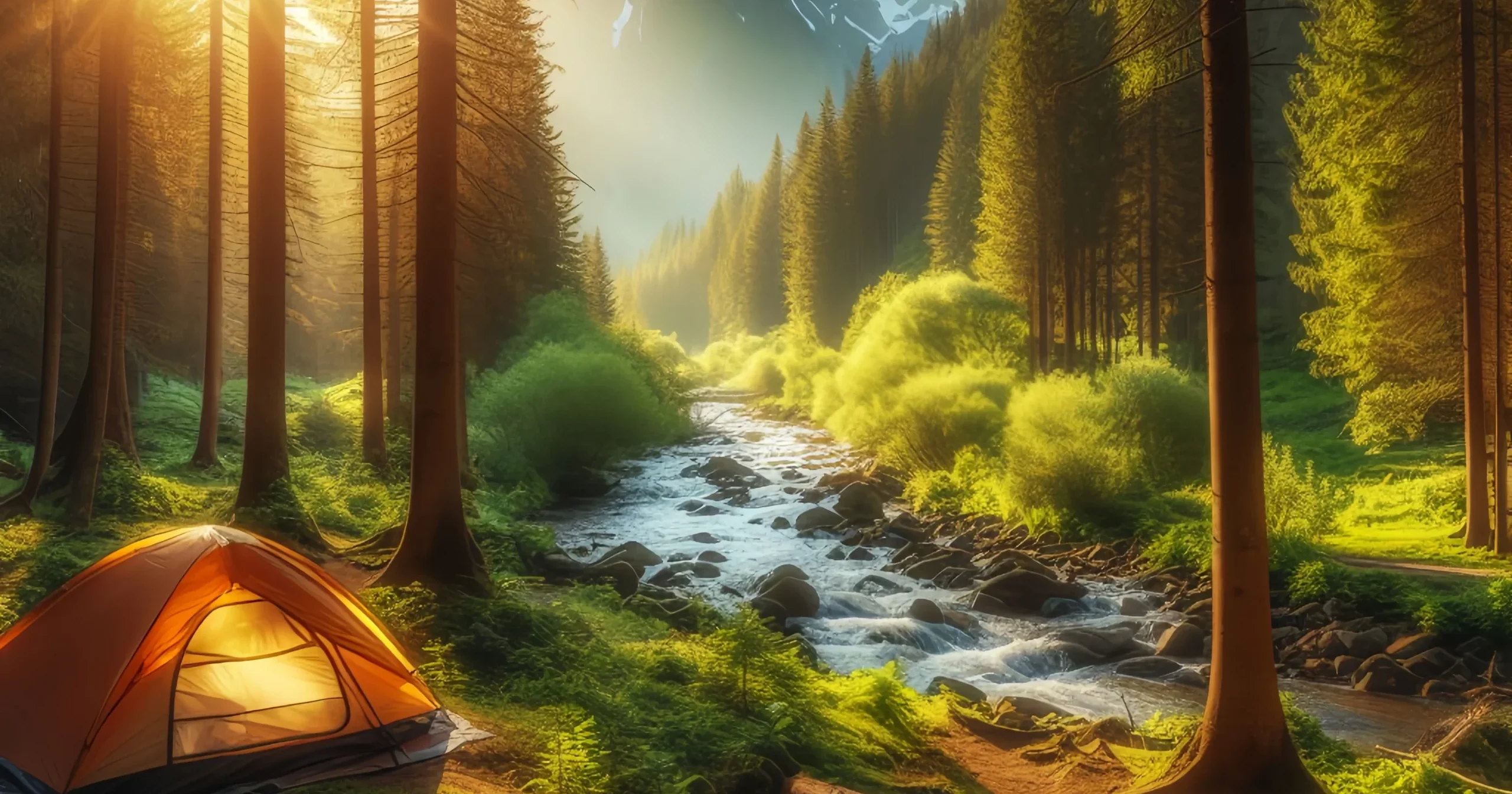

Camping is not only a fun and adventurous activity, but it also offers a wide range of benefits for your physical, mental, and emotional well-being. We will explore the amazing benefits of camping and why camping is a popular choice for outdoor lovers.
1. Stress Relief
One of the greatest benefits of camping is its ability to provide stress relief. The fresh air, peaceful surroundings, And no distractions help you de-stress and find inner peace.
2. Physical Exercise
Camping is a great way to get moving and stay active. Whether you’re hiking, swimming, or simply setting up your campsite, you’ll be engaging in physical activity that can improve your blood circulation, strengthen your muscles, and boost your overall fitness. Plus, spending time outdoors exposes you to natural sunlight, which is a great source of vitamin D.
3. Improved Sleep
Have you ever noticed Camping helps to improve the quality of your sleep? And sleep without artificial light at night improves your sleep and makes you feel refreshed.
4. Spend Time with Family and Friends
Camping is a fantastic way to spend quality time with your family and friends. Whether you are camping with your family, friends, or partner, the experience of spending time in nature together creates lasting memories and strengthens your relationships. From roasting marshmallows around the campfire to telling stories under the night sky.
5. Mental Clarity
In the modern age, our minds are continually overloaded. Camping offers a chance to disconnect from technology and give your brain a break. Without the distractions of technology, you can focus on the present moment, practice mindfulness, and gain mental clarity. The peace of nature can help reduce anxiety, improve concentration, and enhance your overall mental well-being.
6. Connection with Nature
There is something truly magical about spending time in nature. Camping allows you to connect with the natural world in a way that is impossible in our urban environments. Whether it’s watching an amazing sunset, listening to the sounds of birds singing, or feeling the earth beneath your feet, camping reminds us of our place in the larger ecosystem and helps us appreciate the beauty of our planet.
7. Creativity Boost
Camping provides the perfect environment for displaying your creativity, whether it’s through photography, painting, writing, or simply dreaming. Problems faced while camping can help you tap into your creative side and come up with new ideas and solutions.
Tips for Camping
If you are a seasoned camper or a beginner, it’s always helpful to have some tips. Now that you understand the basics of camping and its benefits, here are a few key tips for planning a successful camping:
1. Plan Ahead
it’s important to plan your camping trip. Research the location you will be camping at and check for any permits or reservations required. Make a checklist of essential items you’ll need, such as a tent, sleeping bags, cooking equipment, and food. Planning will help you avoid any last-minute problems and make sure you have everything you need.
2. Choose the Right Campsite
When selecting a campsite, consider factors such as proximity to water sources, level ground for pitching your tent, and access to restrooms and showers. Look for a campsite that suits your needs and preferences. Researching and choosing the right campsite will enhance your overall camping experience.
3. Pack Properly
Packing well is essential for a successful camping trip. Make a checklist of all the essential items, such as a tent, sleeping bags, camping stove, cooking utensils, food, water, and clothing. Don’t forget to bring a first aid kit, insect repellent, and other personal essentials. Pack light but ensure you have everything you need to stay comfortable and safe during your camping.
4. Set Up Camp Early
Coming to your campsite early in the day gives you lots of time to set up your tent and organize your campsite. This will give you more time to relax and enjoy the surroundings. Setting up camp early also ensures that you have enough daylight to familiarize yourself with the area and locate important facilities such as restrooms and water sources.
5. Follow Campsite Rules and Leave No Trace
Respect the environment and follow the rules of the campsite. Be mindful of noise levels and keep your campsite clean and organized. Remember to leave no trace by properly disposing of your waste and packing out what you pack in. Leave the campsite as you found it so that others can enjoy it after you.
6. Prepare for Weather Conditions
Weather conditions can change quickly, so it’s important to be prepared. Pack appropriate clothing for both warm and cold weather, as well as rain gear. add extra layers and blankets to stay warm at night. It’s also a good idea to check the weather forecast before your trip, so you can plan accordingly and make any necessary adjustments.
7. Stay Safe
Safety should always be a top priority when camping. Familiarize yourself with the campsite’s safety guidelines and emergency procedures. Keep a first aid kit handy and know how to use it. Be cautious around the campfire and make sure it is fully burned before leaving. Also, be aware of any dangerous animals in the area and take necessary precautions to keep yourself and your stuff safe.
8. Enjoy Nature and Disconnect
As we have already discussed above. One of the best things about camping is the opportunity to disconnect from technology and enjoy the beauty of nature. Take the time to explore the surroundings, and go for hikes. Leave your devices behind or limit their use to emergencies only.
9. Be Flexible and Have Fun
Camping is all about adventure. Be versatile with your plans and open to new experiences. Embrace the challenges that may arise and turn them into opportunities for growth. Most importantly, have fun and create lasting memories with your loved ones. Camping is a time to relax, unwind, and enjoy the great outdoors.
Overall, By following these tips, you’ll be well-prepared for a successful camping trip. Remember to plan, choose the right campsite, pack properly, set up camp early, follow campsite rules, prepare for various weather conditions, stay safe, disconnect from technology, and most importantly, have fun.
Conclusion
Camping is an amazing way to escape the stresses of everyday life and reconnect with nature. Whether you prefer roughing it in a tent or enjoying the comforts of an RV or glamping accommodation, camping offers something for everyone.
If you don’t understand something or if I forget to tell you something, please let me know.

